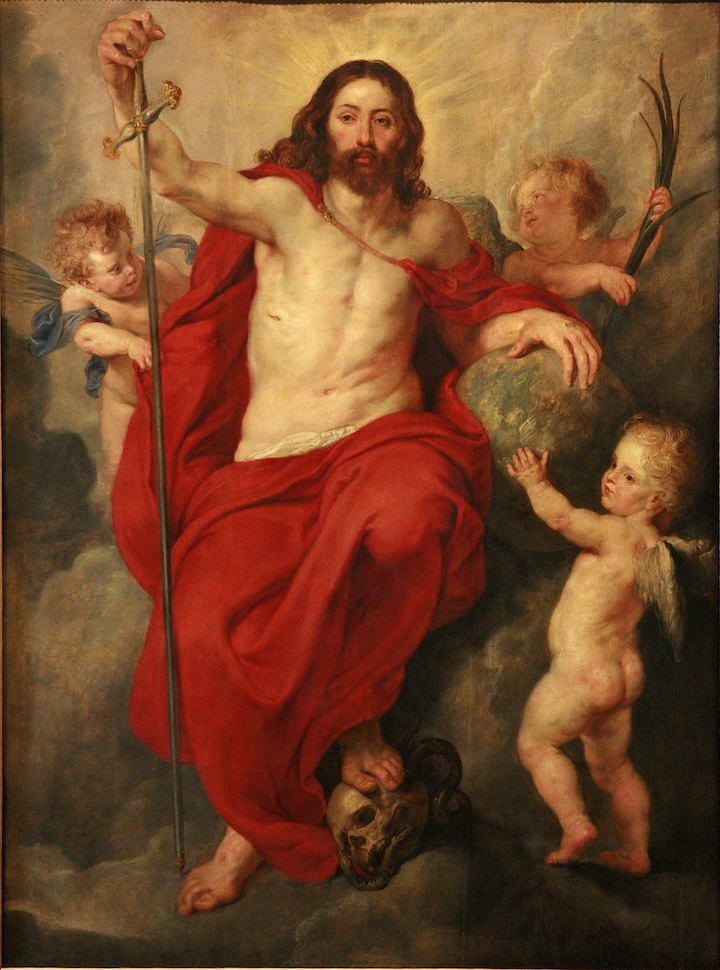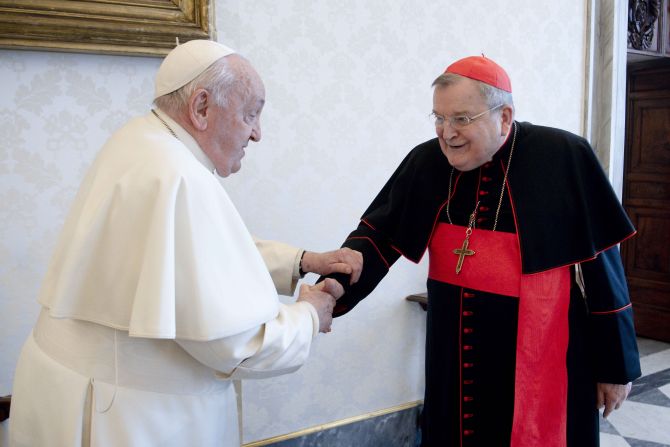In the military, all servicemen know the mantra, “Leave no man behind.” They know, deep down in their gut, that if they fall or are wounded on the field of battle, their comrades in arms will move heaven and earth to get them home.
Today, in the Church we have a man down. His name is Cardinal Raymond Burke. He has taken one for the Team, and been stripped of his retirement and residence, purportedly for working to subvert the mission of the Church.
In truth, the Cardinal has been made an example, a warning to other churchmen who might presume to defend doctrine and Truth in the public square. And we have all heard that there are many good churchmen in the wings, in the shadows, who stand with Cardinal Burke in defense of the Church. But if these shadow men will not step into the light, what good is their orthodoxy? The microphone, the camera, and the narrative have been confiscated by liberal forces.
If any Cardinal would make a public statement of outrage over the breach of protocol in the restrictions imposed upon Cardinal Burke, his voice would speak simple justice aloud. If one bystander had dared to proclaim that the emperor had no clothes, all those on the sidelines could have spoken their inner agreement aloud.
But we wait. And we ask, where are the good guys? Where is the brotherhood of the Cardinalate coming to the defense of a man down? A man being treated with injustice. A good and (yes) meek and deferential, but unashamedly orthodox, man.
And so, we are left questioning Our Lord. Why are You allowing this to happen? Why don’t You protect Your Church? And there is no response, because Our Lord has entrusted His Church to the hands of men. Good men. Where are they?
It was the same for Christ. He hung upon the Cross, and they all fled. His Mother stood, and St. John the Beloved with her, alone.
Our school recently presented our “Faith and Freedom Award” to the Five Dubia Cardinals. The award was accepted by Cardinal Burke on their behalf. We told the Cardinal, you, just you and five men, that is all there is right now. That is the group willing to stand publicly, alone.
We read in Matthew’s Gospel that after Christ allowed Himself to be condemned to death for no crime, allowed Himself to be scourged for no offense, allowed Himself to be struck on the face, spat upon, cursed, and to carry the Cross of shame to public execution, He cried out to God the Father:
Now from the sixth hour until the ninth hour darkness covered the land. And about the ninth hour Jesus cried out with a loud voice, saying, “Eli, Eli, lama sabachthani?” that is, “My God, My God, why have You forsaken me?” (Matthew 27:45-46).

In Christ’s cry in anguish, He is proclaiming the words of Psalm 22. Like a hyperlink to the entire Psalm, His words fully proclaim a prayer not of despair but of total trust and abandonment on the Cross.
A few lines further on from the cry of abandonment, that Psalm asserts that, despite the apparent triumph of evil, God is enthroned and will deliver us from the darkness. “In you our ancestors put their trust; they trusted and you delivered them. To you they cried out and were saved; in you they trusted and were not put to shame.” (Psalms 22:4-5)
God will have the final victory in all that we face. The Psalm triumphantly concludes, “Indeed, He has accomplished it!” (Psalms 22:31)
It is only with Christ’s faith that we can face the darkness that covers the land, the darkness that may have come for us in our workplace, in our witness, in our vocation of fidelity to Him.
In the very face of violence and uncontrollable fury, the vicious anger of diabolic lies, we can only hide ourselves in Him. Ask Him to take the stripes upon His back, ask Him to take the mockery, the wounds, the chaos. Only His heart is strong enough, large enough, and Sacred enough, to encompass the brokenness we face.
Only His Sacred Heart can say, after receiving all of this within Himself and pouring mercy out upon it, “I thirst to love more deeply.” As John’s Gospel tells us, “After this, Jesus, knowing that all things were now accomplished, that the Scripture might be fulfilled, said, ‘I thirst.’” (John 19:28)
The only answer is Christ’s.
And He commends His thirst to us, as His Mother’s sons. “When Jesus saw His Mother there, and the disciple whom He loved standing nearby, He said to her, ‘Woman, behold your son.’ And He said to this disciple, ‘Here is your mother.’” (John 19:26-27)
He entrusts us to His Mother, and His Mother to us, and then He departs.
“’Father, into Your hands I commit my spirit.’ Having said this, He breathed His last.” (Luke 23:46)
We often feel helpless, wounded, wronged, afraid, alone. But we commit our spirit into His hands, and ask Him, through His mercy, to assist us to love and defend His Holy Mother. We ask Him to allow us to help slake His thirst for love of the world and of our hearts. We ask His Holy Spirit, given to us to strengthen us in our task, to act through us. Give us the courage, Holy Spirit, to be faithful to Christ as darkness covers the land.
Alone, we do not have the strength. Only with Christ, in His faithfulness unto the last, can we offer our broken hearts and darkened land into the Father’s healing hands, and there find the strength to remain faithful to Him.
















